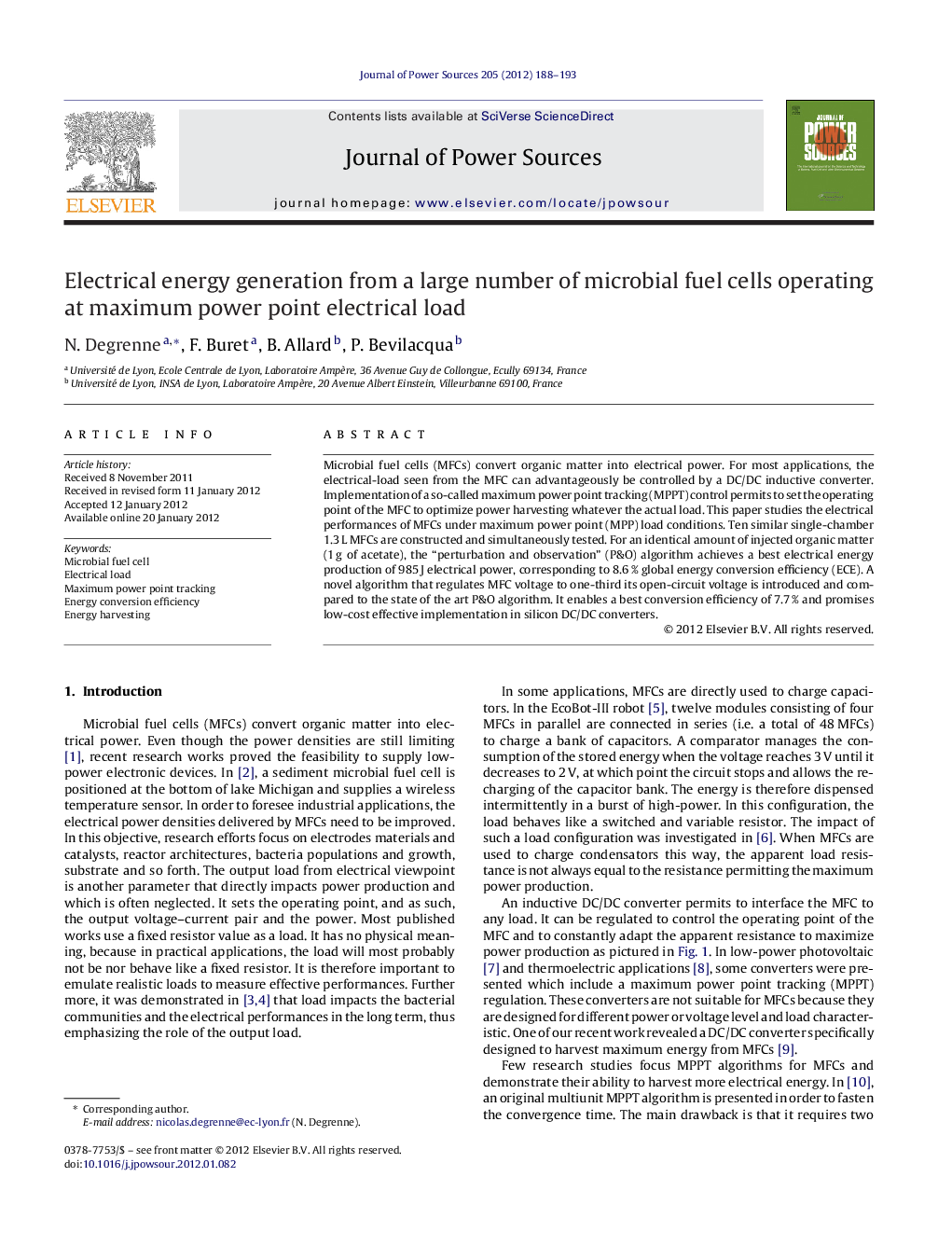| Article ID | Journal | Published Year | Pages | File Type |
|---|---|---|---|---|
| 1288131 | Journal of Power Sources | 2012 | 6 Pages |
Microbial fuel cells (MFCs) convert organic matter into electrical power. For most applications, the electrical-load seen from the MFC can advantageously be controlled by a DC/DC inductive converter. Implementation of a so-called maximum power point tracking (MPPT) control permits to set the operating point of the MFC to optimize power harvesting whatever the actual load. This paper studies the electrical performances of MFCs under maximum power point (MPP) load conditions. Ten similar single-chamber 1.3 L MFCs are constructed and simultaneously tested. For an identical amount of injected organic matter (1 g of acetate), the “perturbation and observation” (P&O) algorithm achieves a best electrical energy production of 985 J electrical power, corresponding to 8.6 % global energy conversion efficiency (ECE). A novel algorithm that regulates MFC voltage to one-third its open-circuit voltage is introduced and compared to the state of the art P&O algorithm. It enables a best conversion efficiency of 7.7 % and promises low-cost effective implementation in silicon DC/DC converters.
► We examine the effect of maximum power point loading on microbial fuel cells. ► A novel maximum power point algorithm is compared to the state-of-the-art P&O. ► Electrical power, coulombic and energy conversion efficiency are investigated. ► Control of MFC voltage enhances electrical energy recovery.
